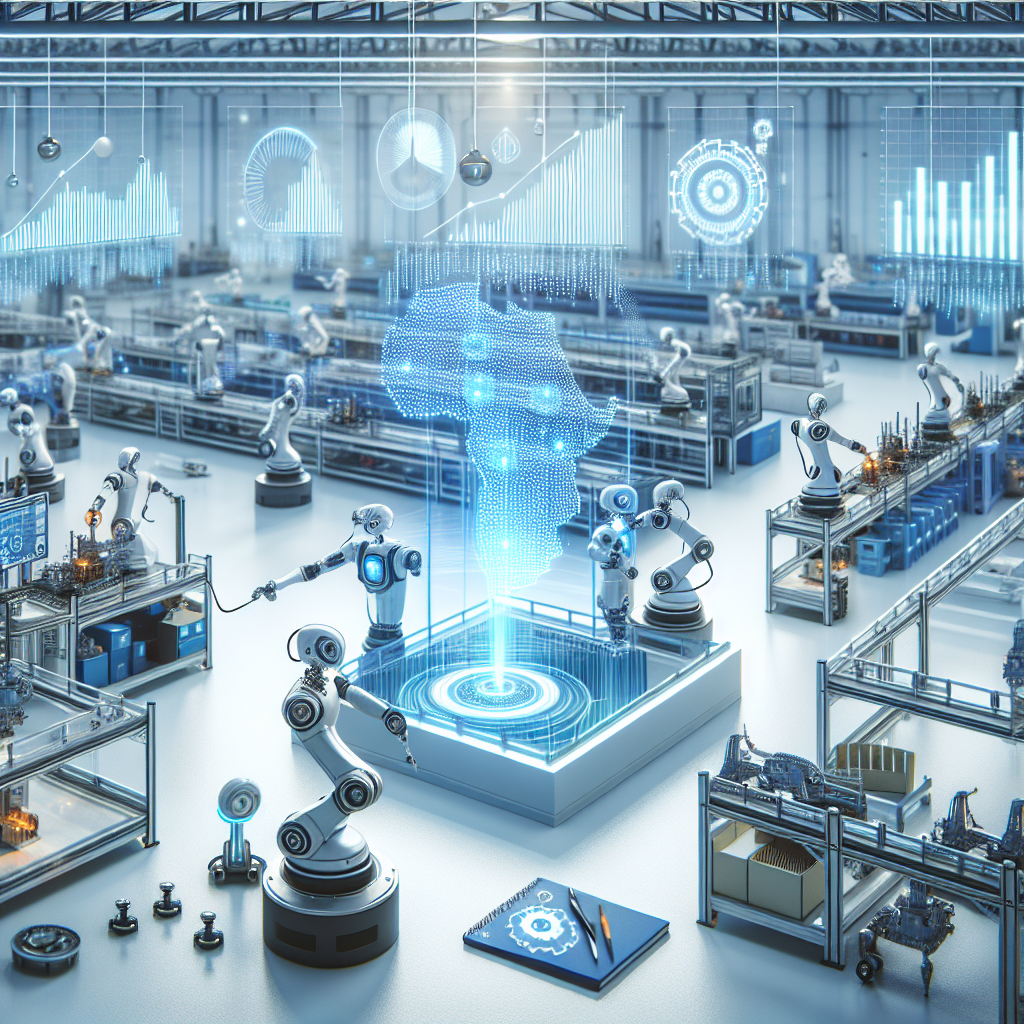Artificial Intelligence (AI) is revolutionizing the way businesses operate across industries. From streamlining processes to enhancing decision-making, AI is transforming the way companies do business. In this article, we will explore how AI is revolutionizing business operations and answer some frequently asked questions about the technology.
1. Automation of Repetitive Tasks
One of the key ways AI is revolutionizing business operations is through the automation of repetitive tasks. AI-powered software can perform routine tasks such as data entry, data processing, and customer service with greater speed and accuracy than human workers. This allows employees to focus on more strategic and creative tasks, ultimately increasing productivity and efficiency within the organization.
For example, chatbots powered by AI can handle customer inquiries and provide personalized support 24/7. This not only improves customer satisfaction but also reduces the workload on customer service agents, allowing them to focus on more complex customer issues.
2. Predictive Analytics
AI is also revolutionizing business operations through predictive analytics. By analyzing vast amounts of data, AI algorithms can predict future trends, customer behavior, and market demand with a high degree of accuracy. This enables businesses to make informed decisions and develop targeted marketing strategies that drive growth and profitability.
For example, AI-powered analytics tools can analyze customer data to predict which products or services are likely to be in high demand during specific times of the year. This allows businesses to optimize their inventory, pricing, and marketing strategies to capitalize on these trends and maximize revenue.
3. Personalized Marketing
AI is transforming the way businesses engage with customers through personalized marketing strategies. By leveraging AI algorithms to analyze customer data and behavior, businesses can create targeted marketing campaigns that resonate with individual customers on a personal level. This results in higher conversion rates, increased customer loyalty, and improved ROI on marketing initiatives.
For example, AI can analyze customer purchase history, browsing behavior, and social media interactions to create personalized recommendations and offers tailored to each customer’s preferences. This not only enhances the customer experience but also drives sales and boosts customer satisfaction.
4. Improved Decision-Making
AI is revolutionizing business operations by providing decision-makers with real-time insights and predictive analytics that enable them to make informed decisions quickly and effectively. By analyzing vast amounts of data and identifying patterns and trends, AI algorithms can help businesses identify opportunities, mitigate risks, and optimize operations for greater efficiency and profitability.
For example, AI-powered business intelligence tools can analyze data from multiple sources to provide executives with actionable insights on market trends, customer behavior, and competitor activities. This enables businesses to make strategic decisions that drive growth and competitive advantage.
5. Enhanced Cybersecurity
AI is also revolutionizing business operations by enhancing cybersecurity measures to protect sensitive data and prevent cyber threats. AI-powered cybersecurity tools can detect and respond to security breaches in real-time, identify vulnerabilities in the network, and predict potential threats before they occur. This helps businesses safeguard their data, systems, and operations from cyber attacks and ensure compliance with regulatory requirements.
For example, AI algorithms can analyze network traffic to identify unusual patterns or anomalies that may indicate a security breach. By flagging suspicious activities and automating threat detection and response, AI-powered cybersecurity tools can help businesses proactively defend against cyber threats and minimize the risk of data breaches.
FAQs about AI in Business Operations:
Q: How can AI improve customer service in businesses?
A: AI-powered chatbots can provide personalized and efficient customer support 24/7, reducing response times and enhancing customer satisfaction.
Q: What are some examples of AI applications in supply chain management?
A: AI can optimize inventory management, predict demand, and streamline logistics to improve efficiency and reduce costs in the supply chain.
Q: How can AI help businesses make better decisions?
A: AI algorithms can analyze vast amounts of data to provide decision-makers with real-time insights, predictive analytics, and actionable recommendations that enable them to make informed decisions quickly and effectively.
Q: What are the key benefits of using AI in business operations?
A: AI can automate repetitive tasks, improve decision-making, enhance cybersecurity, personalize marketing, and optimize processes to drive productivity, efficiency, and profitability within the organization.
In conclusion, AI is revolutionizing business operations by automating tasks, providing predictive analytics, personalizing marketing, improving decision-making, and enhancing cybersecurity. As businesses continue to adopt AI technologies, they will benefit from increased efficiency, productivity, and competitiveness in the market. By leveraging the power of AI, businesses can unlock new opportunities for growth and innovation in the digital age.

